
views
Determining the Cause
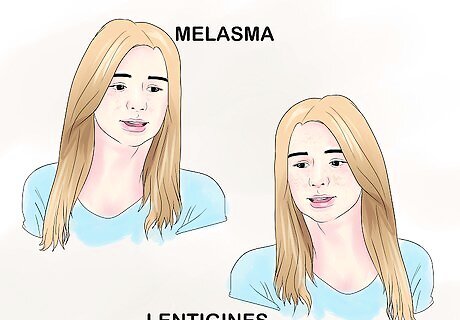
Know the different types of hyperpigmentation. Getting familiar with the types of hyperpigmentation will help you determine the right course of treatment and give you ideas for lifestyle changes you can make to prevent further discoloration from occurring. Understand that hyperpigmentation does not only occur on your face. Here are the four types of hyperpigmentation: Melasma. This type of hyperpigmentation is caused by hormonal fluctuations, and is a normal occurrence during pregnancy. It can also occur as a result of thyroid dysfunction and as a side effect of taking birth control pills or hormone therapy medication. This is a difficult type of hyperpigmentation to treat. Lentigines. These are also known as liver spots or age spots. They are found on 90% of people over the age of 60, and are usually caused by exposure to UV rays. Non-solar lentigines are caused by a larger systemic disorder. They're most commonly found on the forehead, nose, and cheeks. Post-inflammatory hyperpigmentation (PIH). This is caused by skin injury such as psoriasis, burns, acne, and some skin care treatments. It usually goes away as the skin regenerates and heals. Drug-induced hyperpigmentation. This secondary hyperpigmentation, known as lichen planus, occurs when drugs cause an inflammation and eruption on the skin. It is non-contagious.

Discuss your condition with a dermatologist. See a dermatologist to find out what type of hyperpigmentation is affecting your skin. After asking you questions about your lifestyle and medical history, your skin will be examined using a magnifying lamp. Expect your dermatologist to ask the following questions to help determine what type of hyperpigmentation you have: How frequently do you use a tanning bed? How often do you use sunscreen? What is your level of sun exposure? What are your current and past medical conditions? Are you or have you recently been pregnant? Are you or have you recently taken birth control or done hormone replacement therapy? What medications are you taking? What plastic surgery or professional skin treatments have you undergone? Did you wear sun screen or UV protection in your youth?
Seeking Treatment
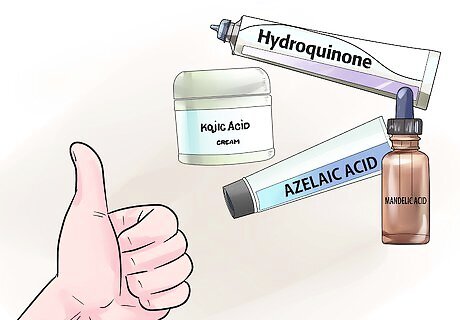
Get a prescription for a topical application. Topical applications containing alpha hydroxy acids (AHAs) and retinoids, which exfoliate and rejuvenate the skin, are helpful in treating hyperpigmentation of all types. The following types of topical applications are available: Hydroquinone. This topical application is the most commonly used, and it's the only skin lightening treatment approved by the FDA. You can get hydroquinone in a 2% strength over-the-counter, or by prescription in 4% strength. Kojic acid. This acid is derived from a fungus and works similarly to hydroquinone. Azelaic acid. Developed to treat acne, this has been found to be an effective treatment for hyperpigmentation as well. Mandelic acid. Derived from almonds, this type of acid is used to treat all types of hyperpigmentation.
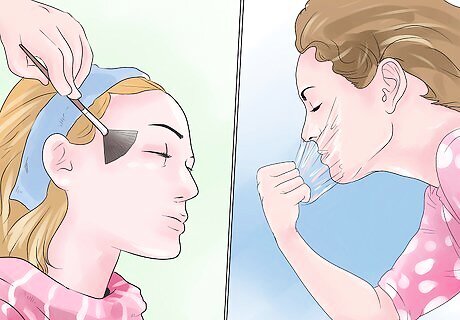
Consider getting a nonablative professional procedure. If topical treatments don't work, your dermatologist might recommend getting a procedure done to target your hyperpigmentation. Available procedures include the following: Skin peels, including salicylic acid peels, to treat darkened skin areas. Skin peels are used when topical therapy fails. IPL (Intense Pulsed Light) therapy. These target selective dark spots only. IPL devices are used under strict supervision under a trained physician. Laser skin resurfacing.
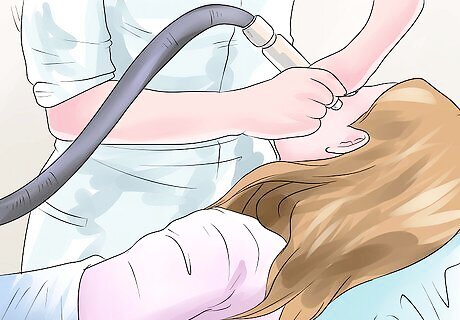
Visit a salon for a microdermabrasion treatment. This is a very popular option among people with hyperpigmentation. Seek an experienced practitioner; abrading the skin can cause irritation, making the discoloration worse. Microdermabrasion should not be done too often, as your skin needs time to heal between treatments.
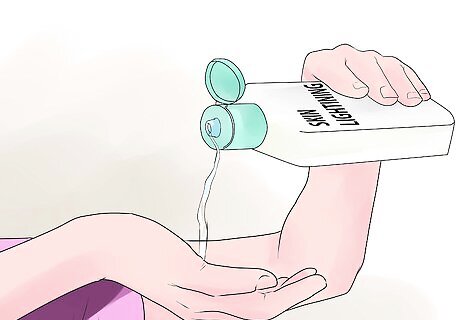
Treat hyperpigmentation using over-the-counter medications. If you want to treat hyperpigmentation without getting a prescription, look for these over-the-counter options: Skin lightening creams. These works by slowing down melanin production and removing existing melanin from the skin. Look for products that contain a combination of these ingredients: cysteamine, hydroquinone, soy milk, cucumber, kojic acid, calcium, azelaic acid, or arbutin. A topical treatment that contains Retin-A or alpha-hydroxy acids.

Try a home remedy. Apply any of the following topically to help to lighten dark areas of the skin: Rose hip oil Sliced, pureed or the juice of cucumber Lemon juice Aloe Vera
Preventing Further Hyperpigmentation

Limit your exposure to UV rays. Exposure to UV rays is one of the most common causes of hyperpigmentation. While limiting exposure will do nothing to affect hyperpigmentation you already have, it can help keep it from getting worse. Always wear sunscreen. In strong, direct sun, wear a hat and long sleeves. Don't use tanning beds. Limit your time outside and don't sunbathe.

Consider your medications. In many cases you won't be able to stop taking a medication just because it causes hyperpigmentation. Hyperpigmentation is a common side effect of birth control and other medication containing hormones. If switching to a new medication or ceasing to take it is an option, it's something to consider. Always talk to your physician before stopping any prescribed medication.

Be wary of professional skin treatments. Hyperpigmentation can result from trauma to the skin, which can be caused by plastic surgery and other professional skin treatments. Be sure to do thorough research before opting to get plastic surgery. Make sure your doctor or practitioner is highly experienced.

















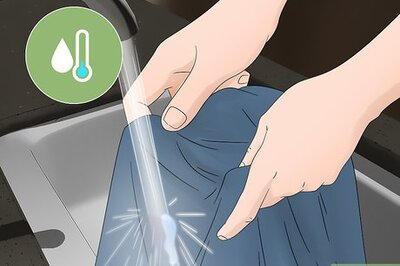


Comments
0 comment